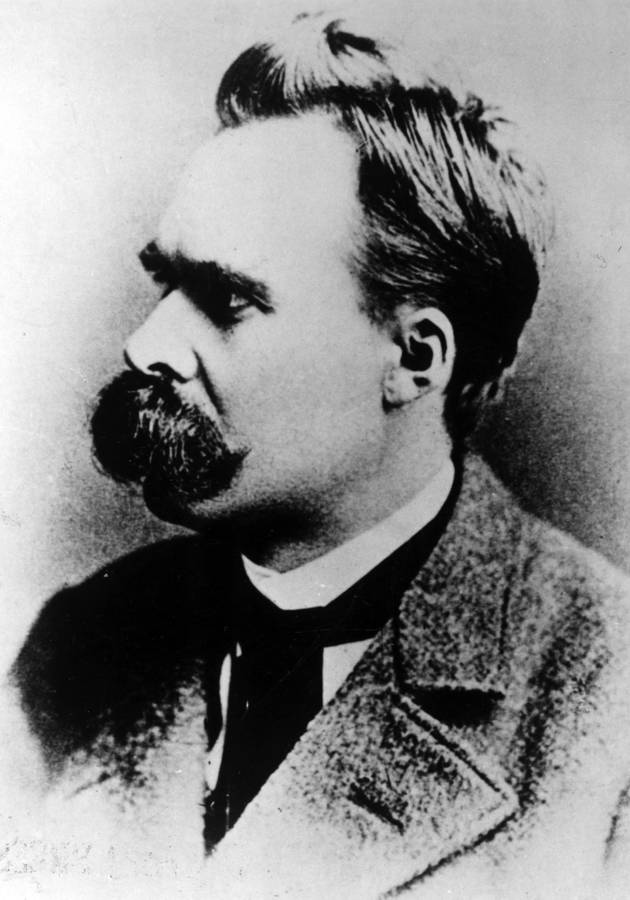How does your company differentiate itself in an ocean of information, ads and other digital distractions that occupy all of your customers' time on the internet? The answer is simple. Epic Content Marketing. In this book, one of the world's top content marketing experts and founder of Content Marketing Institute, Joe Pulizzi, explains how to attract customers and lead them to his business just by creating content that is relevant to them. The book is a step-by-step approach to creating stories that inform, entertain and provoke clients to act. Epic content is set up with the customer in mind and delivered to him at the right time. Epic Content is about positioning your business as an authority in your industry. Epic content is one that customers share and consume with pleasure. Whether you are a marketing director, a CEO or an entrepreneur, this is a must-read for anyone looking to understand the new way of doing marketing. Let’s read this?
Content Is The New Marketing
Traditional marketing was based on the premise that speaking louder than your competitors about your product was enough to attract new customers. But as you might guess, this approach is focused on the company rather than the consumer. The new consumer is increasingly digital, connected and informed. They want to get away from the noise and absorb relevant information. Generic ad units no longer work. The consumer wants messages aligned with their needs and not those that speak only of the product advantages. The future of marketing is content marketing, and the winners of this change will be the brands that can masterfully tell stories to their audience. Although content marketing is a relatively new concept, the term was coined in the early 2000s; its principles referred back more than 100 years ago. This new discipline has evolved rapidly and has been widely accepted by market professionals and consumers alike.
5,000 Marketing Messages Every Day!
Marketing messages bombard consumers constantly. From when they leave the house in the mornings until they return and turn off the TV before bed, marketing messages may reach more than 5,000 per day. If the consumer is marketing saturated, imagine how difficult it is for a marketer to stand out in the midst of all this noise? All this occurs because the traditional marketing model based on the communication of advantages and services of the products that the companies sell, no longer interest consumers. With this high volume of marketing messages bothering the customer, the only way to get their attention is content marketing. To enter this world of marketing, you need to understand in depth what the consumer likes and needs and produce relevant content to meet their needs. This custom marketing increases consumer confidence increase and also significantly reduces marketing costs, as it is a different format from traditional advertising. But before you enter the world of content marketing the first step is to know what your business expects from it and what steps you will have to take.
The Levels Of Content Marketing
To understand how to embrace content marketing, you need to know what your levels are. If you produce or have already started generating content, you are likely to be at one of 3 levels below:
-
The company understands the role of content - In this scenario, your content works to stand out amidst the noise generated by advertising and info pollution, and eventually customers discover your product. A typical example is the companies that already produce content, already attract readers to their sites and realized that content generates business.
-
Thinking leader - As a thoughtful leader, your brand creates content that delivers value beyond the scope of your product, to establish your company and its authors as industry experts. At this stage, companies already have the authority and are considered specialized industry sources.
-
Storytelling - By using storytelling, you give your customers an emotional connection to your brand. The brand's overall message inspires and shows that the company cares about what people need. The history of the company is emotionally honest, and so consumers tend to buy from you.
Before Creating, Know Your Public
Joe Pulizzi suggests that businesses adopt the creation of personas (note the author, also read: Buyer Personas, by Adele Revella) to create representations of their audience. A persona is a fictional representation of your audience. The process of creating personas is simple. You need to describe your customers and understand their demographic characteristics. What are their age, gender, and financial condition? Why does this person need your company and its content? How can your business help them? Once you've created personas for your audience, it's time to get your hands dirty and create something that addresses the issues dear to your audience. In this regard, you need to put together a content team with talents who truly believe that good content is essential to succeed in modern marketing. The primary roles of a content marketing team are:
-
Content Manager - He or she oversees all content marketing initiatives and ensures they match the company's marketing strategy. Ideally, this person should have a background and experience in the areas of journalism, publishing, etc. They should be able to know how to create content for different audiences and understand their field of expertise.
-
Editor-in-chief and creators of content - The publisher will work with leading content creators. Often, content creators are freelance writers who can write stories based on their company's audience persona and selected content niches. The editor-in-chief delivers the work on time, he or she edits and manages the editorial calendar. Plus, the editor-in-chief will make sure your content is optimized for search engines as well.
-
Audience Manager - They ensure that your content has the desired marketing effects and consumption. The audience manager monitors how the audience has come to the content and how they perceive it. To synchronize your team, just like in a newsroom of a major magazine, you also need to have an editorial calendar. This calendar coordinates all the pieces to be created, reviewed and republished by your content marketing team. A sample editorial calendar could contain, for example, an X number of blog posts per week, one video on the company's youtube channel and review of X content dated by month.
Learn SEO And Social Media
Since content creation has become a reality, you need to master the art of distributing content to your readers to increase consumption. To effectively promote your content, you need to plan how you will use social media and a search engine optimization (SEO) strategy. Social media is critical, but with each passing day, a new social network emerges, so it is important to choose the ones your personas use and actively consume content. If your target audience is juvenile, it does not make sense to be on Linkedin. Just as if your target audience is more formal and older, they may not be on Pinterest.
In addition to knowing how to choose the right social networks, there are some good practices for sharing content and growing your network of followers/interactions on every social network. To distribute content on social networks, you need to create long-term relationships. Joe Pulizzi suggests that you adopt a strategy called 4-1-1. It is based on the following content creation format for social media. Share four materials from influencers (Retweets and shares of Bloggers, portals, celebrities) to build relationships with your market icons and hope that they also start sharing your content. Post 1 original, exclusive and unique content. Finally, post one content that deals with sales like coupons, product releases, or press releases.
This approach ensures that you do not talk only about yourself and engage more people with your content. That is, six materials and only 1 of them talk about your company. That's the key to new marketing. Another important point to ensure customers find your content is to optimize it for searchers by investing in SEO. It is essential that your team identifies the keywords your customers are searching for on Google, and from there, you plan what content could answer the questions people are searching for when using those keywords. This optimization ensures users find your content. Use tools like Moz, Semrush or Google Keyword Planner to understand which keywords are the most searched for, their volume and their competition, and create content according to your persona’s Google questions.
Follow Your Metrics With Care
If your strategy is in place, it is important to metrify it to ensure continuity and constant improvement. There are four main groups of metrics when it comes to content marketing: Consumption, sharing, lead generation and sales. Each of them has a unique and equally important role. All members of the content team must understand each one of them and follow them continuously. Let's have a look:
-
Content consumption metrics - These serve to know if people are reading, watching, and being impacted by the content you create. Google Analytics can track page views and downloads of your content. YouTube Insights tracks the number of video views, for example. Examples of consumption metrics include video views, blog page views, etc.
-
Sharing Metrics -Common sharing metrics include: number of retweets, likes and sharing on all social media. Sharing metrics are the best indication that your content has made people talk about your business and how much they are interested in the subject. They can be monitored through Google Analytics, BuzzSumo and others. Universal sharing metrics include Number of retweets, likes, and shares across all social networks * Lead generation - The ability for content to be monetized in the future is also worth evaluating. You can measure this through lead generation metrics. Leads are people who have shared their contact information with your company by filling in forms, subscribing to newsletters, etc. Widespread tools used to measure lead generation are Hubspot, Marketo, etc. Lead generation metrics include visitor conversion rate in leads, number of total leads, number of qualified leads, etc.
-
Sales - Sales metrics are calculated based on the number of people who have been exposed to your content and have effectively bought and become customers. It is much simpler to measure financial return when the content is directly linked to an economic indicator. Example metrics would be Revenue per blog reader, the average ticket of users exposed to a campaign, etc. Knowing how to use these four groups of metrics will help you understand and review your content marketing strategy continuously. Measure to improve!
Final Notes:
If your company seeks to understand the new consumer and stand out amid an ocean of information in which you are just another face in the crowd, the easiest way to do it is through the adoption of content marketing. Content marketing means producing content that speaks less about you and more about the needs of the customer. To do this, you need to use strategies such as creating personas, which represent your clients, having a content team that can talk to your potential customer, and, finally, be able to accurately measure the outcome of each piece of content created by your company.
12min tip: How about embarking on epic content and learning 17 top secret tips for creating marketing emails?





























